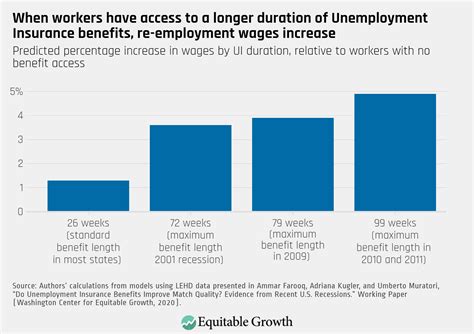The ongoing debate about extending unemployment benefits to individuals who quit their jobs is heating up, and for good reason. One of the key arguments revolves around moral hazards, such as incentivizing individuals to shirk responsibilities if the safety net becomes too comfortable. However, another perspective emerges when we examine how corporations often enjoy the luxury of underpaying employees, who have little choice but to accept low wages due to economic constraints. In essence, this argument boils down to the question: which is the greater moral hazard—supporting potential ‘couch potatoes’ or continuing to allow companies to underpay their employees?
A recurring theme in this debate is the misconception that no one working full-time can live below the poverty line. Some argue vigorously that positions at corporations like McDonald’s or Walmart actually pay well enough to live comfortably. Yet, anecdotal evidence and numerous studies contradict this. For instance, according to a 2020 report from Business Insider, around 70% of people on Supplemental Nutrition Assistance Program (SNAP) food stamps and Medicaid work full-time, often for large companies. This highlights a severe discrepancy between the lowest wages paid by prominent corporations and the actual living costs.
This debate isn’t without its complexities. Many comments argue that low-income wages have seen a noticeable rise since 2020, but others point out that the federal minimum wage still stands controversially at $7.25 per hour. Yet, the Federal Poverty Level (FPL) for a single person is just under $15,060 annually, making it clear that full-time employment at this rate results in living below the poverty threshold in many states. Furthermore, the challenge becomes greater for single parents and individuals with dependents. A point illustrated by a user is that despite these increased wages, some still qualify for Medicaid and SNAP, which often requires keeping income below certain thresholds to continue receiving support.
Another significant issue includes the policy’s behavioral incentives. Some argue that being constantly underemployed creates a cycle where employees can’t afford to take risks, like seeking better jobs or negotiating higher wages, without the fear of losing their crucial safety nets. This viewpoint is encapsulated by those who feel trapped, needing to balance just the right number of working hours to avoid losing benefits and falling into a worse financial situation. It showcases the stress and systemic issues that arise from policies designed without considering long-term behavioral patterns.
From a policy perspective, various countries offer interesting comparisons. In some European nations, unemployment benefits are also available for individuals who quit their jobs, subject to certain conditions and waiting periods. For example, in Germany, if an individual quits their job, they face a waiting period for unemployment benefits but can still receive up to 60% of their previous salary for a limited duration. Similarly, Denmark offers up to two years of unemployment benefits with a mandatory one-month quarantine for those who resign voluntarily. These models suggest that a balanced, pragmatic approach to extending unemployment benefits to voluntary separations is not only possible but also functional.
Implementing such a policy in the U.S. would require careful planning to avoid abuse and ensure sustainability. Critics argue that people might manipulate the system by job-hopping just to stay on benefits. Others suggest that robust measures, like tighter qualification criteria and monitoring, could mitigate such risks. Moreover, safeguarding funds can involve integrating mechanisms that draw on a worker’s employment history, thus incentivizing steady employment while providing essential support during periods of transition. Debate participants emphasize that the real challenge of unemployment benefits isn’t merely financial but a combined issue of economic security, workforce participation, and social support. Hence, expanding these benefits could potentially enhance socioeconomic stability, empowering workers to seek better opportunities without the crippling fear of financial ruin.


Leave a Reply